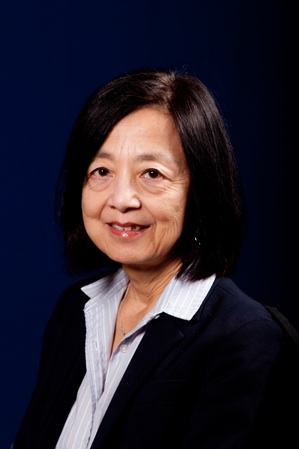Dr. Lai-Kent Orenduff: A Q&A About Art, Love and Teaching
September 14, 2010
10-150
Dr. Lai-Kent Orenduff: A Q&A About Art, Love and Teaching

|
NOTE: TO REACH DR. ORENDUFF, PLEASE CALL (229) 333-6001.
VALDOSTA -- Dr. Lai-Kent Orenduff’s love for art is contagious, and her zest for educating students -- even more magnetic.
The associate professor of Art, honored with the 2010 Faculty Excellence in Teaching Award, strives each day to expose students “to the diversity of the world.” Read how she developed her fondness for modern art and how it continues to move her -- intellectually, creatively and spiritually.
Did you always want to go into the arts? Why? When did you develop this passion?
Informally, I have always been aware of the arts because my father loved the opera and my mother never hesitated to point out the visible beauty in our world. I did not decide to study art history until I heard Robert Hughes (Australian-born art critic, writer and documentarian) give a talk at my university. He was not only a fantastic speaker, but he also brought life to paintings. For Hughes, finished painting was not static; it developed just like a plot in a literary work or movement in a musical composition. It had meaning beyond the recognition of the subject matter and composition.
What would you say to someone who says "I just don't get modern art"?
Art before the modern period (late 19th Century - present) was easier to understand because we expected to recognize the subject in the painting. After the beginning of the 20th Century, art (modern) was more about the expression of the artist, not imitation of the natural world. It was liberating for the artist to know that the subject did not have to be totally realistic anymore. For the viewer, however, it meant he/she had to delve deeper in the painting to try to understand what the artist was trying to do with that particular modern work. Greater responsibility was given to the viewer, which means reading, researching, and learning about modern work. Also, there is that tendency to mix "not liking something" with "not understanding something."
What do you love about teaching?
Art has impacted every aspect of my life, and teaching affords me the opportunity to share this gift with others. Plus, I learn from my students. They make me question my old concepts so that I can develop my ideas along with them. They keep me alert!
Why is it important for faculty to push themselves to research and engage in other professional development opportunities?
Information is constantly growing and changing. With our emphasis and growth in mass media, new ideas (not just in art) abound. As academics, we strive for the truth, and we need to be aware of new developments and concepts. Art is very vulnerable to cultural and political changes, and we are always re-assessing what we think is important in our field. For instance, Norman Rockwell was once beloved, then berated, and now his artwork is in its ascendency again. It might help that Steven Spielberg collects his works.
What is your proudest professional moment?
My proudest professional moment was when my students gave a statewide presentation at the Georgia Student Art History Forum.
Latest project …
I am currently working on an art history text. It is more of a collaborative project with my colleagues from graduate school and other universities.
Newsroom
- Office of Communications Powell Hall West, Suite 1120
-
Mailing Address
1500 N. Patterson St.
Valdosta, GA 31698 - General VSU Information
- Phone: 229.333.5800
- Office of Communications
- Phone: 229.333.2163
- Phone: 229.333.5983